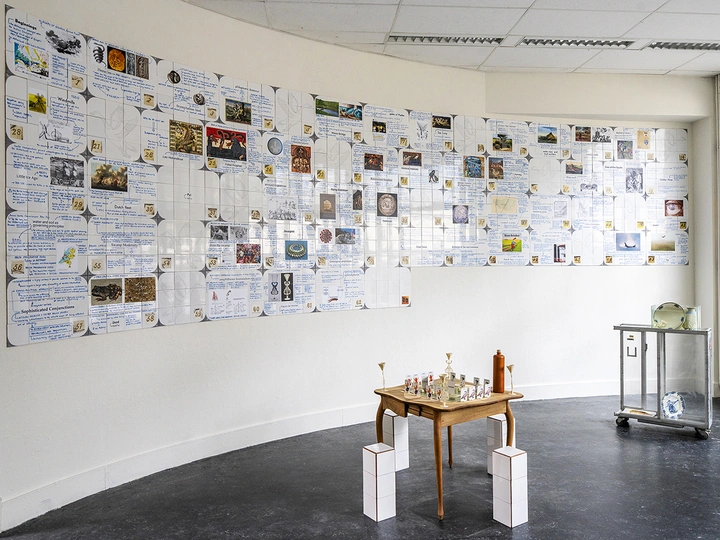AnAmphibious Retreat

I am a research-led designer whose practice moves between design, architecture, and visual storytelling. My work spans a wide range of topics, reflecting an investigative and critically engaged approach—from the subtle exoticism in the marketing of artificial turf in German DIY stores, to the gamified museification of Venice under tourism-driven economies, to the re-evaluation of Dutch wetlands that challenges centuries of dredging, drainage, and land reclamation. Across these inquiries, I explore how systems distort, commodify, and reshape our understanding of environments and cultural narratives.
I was previously an artist-in-residence at Fabrica Research Centre in Italy. My academic background includes studies in Communication Design at HAW Hamburg, Architecture at the Bezalel Academy in Jerusalem, and an MFA in Non Linear Narrative at the Royal Academy of Art in The Hague, supported by the DAAD (German Academic Exchange Service).
From 2019 to 2023, I was part of the curatorial team at Frappant Galerie in Hamburg. In 2023, I collaborated with filmmaker Carlos Casas on the art direction and co-curation of Venezia Fabrica Futura, presented as part of the Venice Fuori Biennale. The following year, I co-founded lagunare, a research collective with Giorgia Burzio and Alicia Valdés, exploring circular economies—both material and narrative—within lagoon ecologies.
My work has been featured in exhibitions and festivals such as Hot Docs (Toronto, 2024), re:publica (Hamburg, 2024), and the Rotterdam Design Biennale (2025), among others.
I have contributed to talks and symposia including Beloved Waters at Stroom Den Haag (2025), New Materials at Elevator Radio during Milan Design Week (2024), and Interior Ecologies hosted by HEAD Genève (2023).
In 2025, my short film J’adore Venise—a poetic reflection on disappearing bodies and fragile landscapes shaped by surveillance capitalism and hypertourism—received the Prix du Jury at the Grain Urban Festival in Paris.
AnAmphibious Retreat is a research-driven project that examines how wetlands—those shifting, in-between spaces where land meets water—have been historically vilified and are now being re-evaluated. Focusing on the Dutch context, where centuries of land reclamation and water control have shaped the landscape, the work responds to a renewed interest in reintegrating these fluid ecologies. Rather than viewing ambiguity, instability, and decay as problems, the project embraces them as conditions for rethinking ecological, political, and aesthetic relationships to place.
At its core lies the notion of “retreat”—understood both as a withdrawal from dominant systems and as a space for reflection, experimentation, and renewal.
The work is structured around the Goose Game, a 16th-century board game conceived as a metaphor for life’s unpredictable journey. Reimagined here as an open-ended framework, it becomes a vehicle for exploring Western perceptions of wetlands over time. In this context, play is used as a tool for collective storytelling, opening space for counter-narratives and speculative imaginaries.
The project also engages with the Goose Game’s Germanic variation, traditionally a drinking game, by incorporating reinterpretations of façon de Venise glassware historically produced in the Low Countries. Inspired by their marine morphology, these vessels are reimagined using biodegradable, water-reactive materials such as alginates and PHAs—bioplastics derived from microbial fermentation. As they dissolve over time, they evoke cycles of decay, regeneration, and multispecies collaboration.
The title AnAmphibious acts as a linguistic glitch—hovering between an indefinite article and a prefix of negation—pointing to the project’s central provocation: can amphibious thinking truly infiltrate and unsettle systems historically designed to resist it?